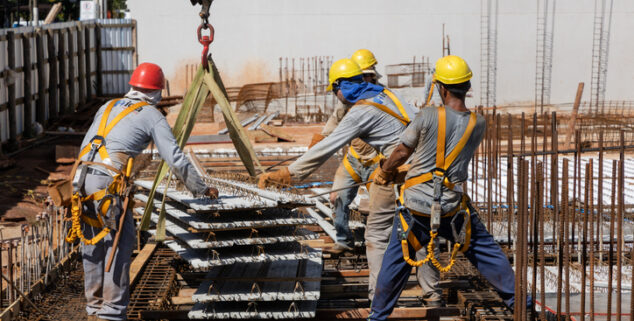Opinion
It’s time for California to modernize public works penalties
 Image by Jair Ferreira Belafacce.
Image by Jair Ferreira Belafacce. OPINION – California’s public works construction market is worth a staggering $46 billion—and growing. But behind this impressive figure lies a problem that’s costing workers, taxpayers, and responsible contractors alike: outdated penalty and registration systems that effectively reward cheaters and leave regulatory agencies dangerously underfunded.
Here’s the crux of the problem. Despite a 41% increase in public construction spending over the past decade and a 42% jump in revenue among California’s top contractors, the penalties for breaking public works labor laws haven’t been updated in over ten years. It’s been more than five years since we updated the contractor registration fees that help fund enforcement.
The cost of food, housing, groceries, building materials and just about everything else has gone up dramatically with inflation these past few years. It makes little sense that the cost of cheating taxpayers and workers on construction projects has not, nor has the cost of registering to participate in California’s $46 billion public works market.
In Northern California Construction Industry Compliance’s latest policy brief, Penalty Reform: How California’s Public Works Enforcement Agency Could Better Protect Workers and Taxpayers, we found that if penalties had been adjusted for inflation since 2013, the state could have generated at least $7.3 million in additional revenue—enough to fund 40 new positions at the Division of Labor Standards Enforcement (DLSE). That’s 40 more investigators to pursue wage theft, payroll fraud, safety issues and other violations in an industry where research shows that nearly one in six workers is exploited.
Indeed, when contractors underpay workers, fail to invest in training or misclassify their labor force to avoid payroll taxes, the costs are borne by everyone. The state loses vital income and payroll tax revenue. Workers are denied wages and benefits they’ve earned. The labor shortages that can throw vital projects off track become more prevalent. And honest contractors—those who follow the law—are forced to compete with cheaters who cut corners, shortchange workers, or who fail to deliver the quality that taxpayers deserve.
That’s why updating penalty amounts and registration fees isn’t just a matter of fiscal common sense—it’s an urgent matter to protect one of the largest industries and workforce segments in our Golden State. Our brief estimates that adjusting the $400 registration fee (paid by more than 36,000 contractors and unchanged since 2017) for inflation would increase annual revenue from $12 million to $18.8 million. Those funds could directly support DLSE investigations, ensuring that the agency has the staffing and capacity it needs to enforce laws and protect taxpayer investments before the statute of limitations runs out on serious violations.
Critically, this isn’t about punishing honest mistakes. DLSE has the discretion to waive penalties when errors are made in good faith and promptly corrected. It’s about holding repeat offenders and deliberate lawbreakers accountable—and ensuring that taxpayer dollars are not rewarding labor or taxpayer exploitation.
At a time when California faces tough budget decisions, modernizing enforcement funding is one of the few win-win solutions available. Every dollar spent on Public Works Enforcement returns $1.11 in recovered wages and penalties. That’s a positive return on investment for California taxpayers, for workers, and for responsible businesses.
California has a proud tradition of standing up for the little guy, but the tools we give state regulators must keep pace with economic reality. Without updated penalties and fees, our enforcement agencies are stuck trying to police a rapidly growing public construction marketplace without the resources they need to do the job right.
The cost of inaction is too high—for workers, for contractors who play by the rules, and for every taxpayer who deserves accountability. Let’s fix it.
Dina Morsi is the Executive Director of Northern California Construction Industry Compliance, a non-partisan industry watchdog.
Want to see more stories like this? Sign up for The Roundup, the free daily newsletter about California politics from the editors of Capitol Weekly. Stay up to date on the news you need to know.
Sign up below, then look for a confirmation email in your inbox.

Leave a Reply